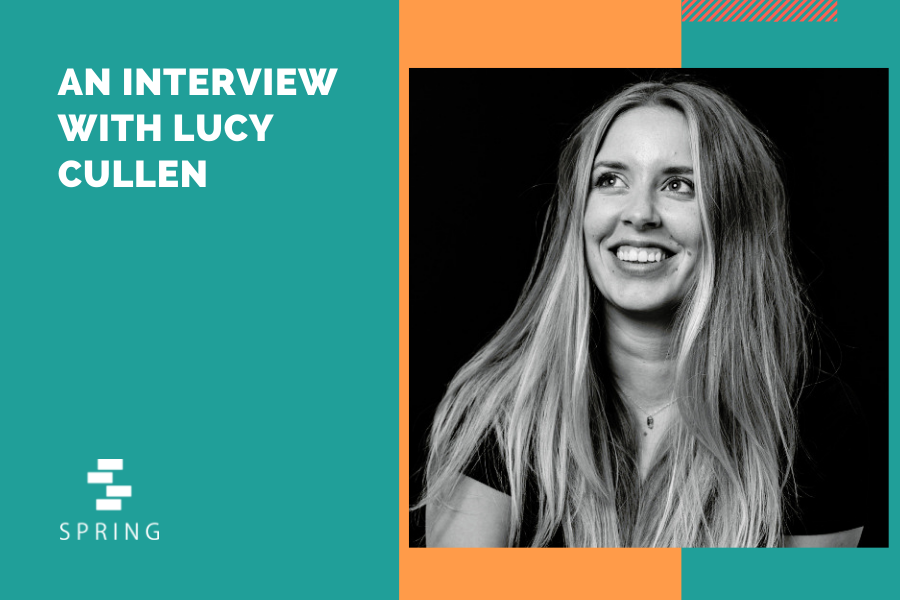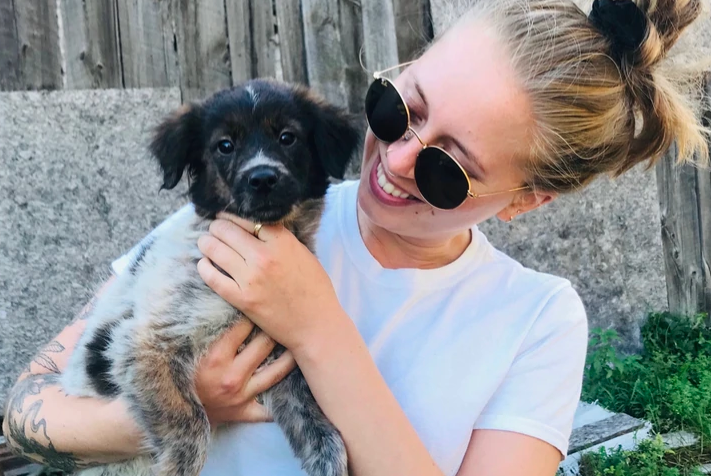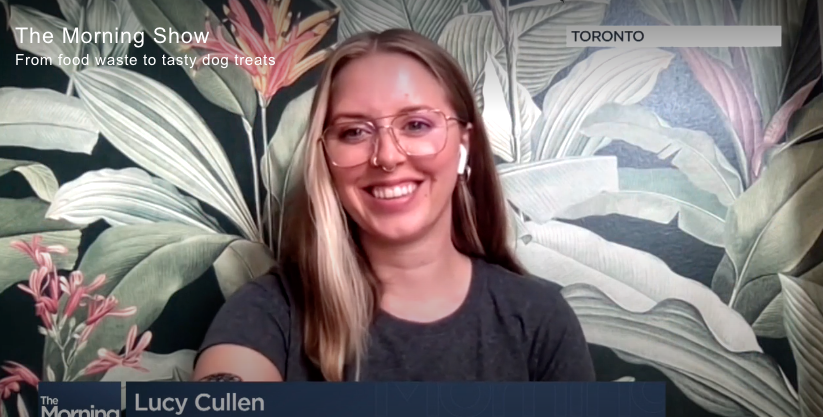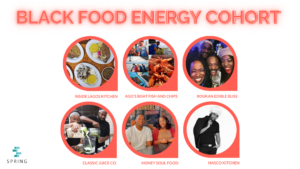Meet Lucy Cullen, Spring’s food business innovation consultant and whiz when it comes to maximizing efficiency and reducing waste.
With over six years of experience as a social entrepreneur, Lucy has founded 2 startups focused on addressing the food waste problem. Her first venture which she co-founded, Terus, helped restaurants reduce waste and save money. Terus became the leader of waste reduction in the Canadian hospitality industry, working closely with Restaurants Canada.
Her second venture, EarthPup, upcycles discarded juice pulp into healthy dog treats. Together, Lucy’s projects have diverted over 300,000 pounds of food waste from landfills. She sat on the Toronto Food Waste Policy Council and has also consulted on a number of food waste projects, including a $20 million food waste initiative with the Canadian federal government.
As an award-winning environmentalist, entrepreneur, and advisor, she has the unique ability to identify opportunities for growth within a business that also prioritizes the environment.
For her work, Lucy has been named one of Canada’s Top 25 Under 25 Environmentalists two years in a row, Top 30 Under 30 Sustainability by Corporate Knights, and the youngest recipient to date of the Emerging Leader Award from the University of Toronto Victoria College.
Lucy holds an Honours Bachelors with Distinction from the University of Toronto and a Double Major in Environmental Studies and Anthropology. She is also an ambassador for two global plastic waste organizations: eXXpedition and RePurpose Global.
How has your background in Environmental Studies and Anthropology led to your journey in food entrepreneurship?
It all happened a bit unexpectedly actually. I worked in the hospitality industry to support my way through university. I started working in restaurants when I was 16 and then moved on to work in events, hotels and restaurants up until I graduated. My academic studies gave me a great baseline perspective on the climate crisis. But we didn’t talk about entrepreneurship at school so it was mostly my work experience in the hospitality industry that propelled me into food entrepreneurship!
Seeing perfectly good food being thrown out every day, made me want to do something about it. I never expected to become an entrepreneur. But an idea to reduce waste at the event space I worked at, ended up turning into a sustainability project at the company. We wanted to help other food companies also reduce their impact. For that reason, I co-founded, Terus. A sustainability consulting company that helps restaurants reduce waste and save money. This was my first business.
Then 5 years later, I wanted to do more to capture food waste, and decided to found my second company, EarthPup. We upcycle food that is usually discarded into healthy, eco-conscious dog teats.
What inspired you to pursue creating impact through food entrepreneurship?
I believe that we can change the world by creating impactful businesses and having environmental and social policies in place that support those businesses.
For me, the fact that we were just tossing out untouched food was ridiculous. From an environmental perspective, social perspective and we’re also just throwing money away! How does that make any sense?
Both of my businesses were pretty new models for Canada, and although it’s certainly been challenging I hope to inspire my peers in the industry to also strive to do better.
We all eat, and we all buy food for our furry family members. There’s a huge opportunity to make a difference in the world through the food we eat.
What led you to go from consulting restaurants and helping them reduce waste to starting your own business upcycling food waste?
I was Lucy the Server, doing a sustainability project at my workplace. Then realized, I could help other companies with reducing waste! I put together a team and we thought, “If we’re going to pitch our services to other companies, we need to have a name.” And it just turned into a business from there, which was Terus. That’s where I discovered my love of being an entrepreneur.
Why is it important to upcycle food waste?
Nearly 60% of food goes to waste in Canada and globally, 6% of global greenhouse gas emissions come from food losses and waste. In addition to that, 1/8 Canadians are food insecure. If we want a sustainable future, we absolutely need to change these statistics and stop throwing food away. A major part of addressing this is upcycling food that is usually discarded into new food products, creating food access programs, and educating customers about what upcycling actually is.
What opportunities do you see for food entrepreneurship to empower systems and communities towards a more sustainable future?
I think we’re already seeing it in many ways. From upcycling food to reducing plastic waste through plastic offset programs. I think we’re just going to see more of it! I believe and hope upcycling will become mainstream.
I think we are going to see customers getting more educated on impact and further demand transparency from brands. Businesses won’t be able to claim to be ‘sustainable’ and leave it there. So the biggest opportunity I believe is really being as transparent as possible with regards to your impact. What is your impact to date? What are you striving towards?
What is your future vision for revolutionizing the food industry, especially with respect to environmental impact?
I think the food entrepreneurs are doing an amazing job of revolutionizing this space. I just hope we see more businesses leading the change, and large corporations and governments can keep up!
Specifically, I hope governments are able to catch up with some of the innovations we are seeing. For example, compostable or biodegradable plastics are not accepted in the compost bins in many municipalities in Canada. This is simply because they don’t have the infrastructure to process these materials, which often require high heat to break down. I would love to see this change.
In order for new innovative materials or models to thrive in the market, we need the infrastructure to support these innovations. I hope to see more of that in the future.
Who is your ideal client or partner to work with and why? What are their characteristics?
For me, it’s someone who is committed to making a difference, no matter how hard the road might be. And can still have fun while doing it!
As an environmentalist and entrepreneur, there are many highs and many lows. It’s great to work with people who think outside the box, can feel hopeful when things are dark, are hard-working and can also have a good laugh at the end of the day.
Follow Spring Activator to stay up to date on upcoming programs and events led by Lucy. To learn more about Spring’s food business innovation initiatives, reach out to Lucy at lucy@spring.is.







